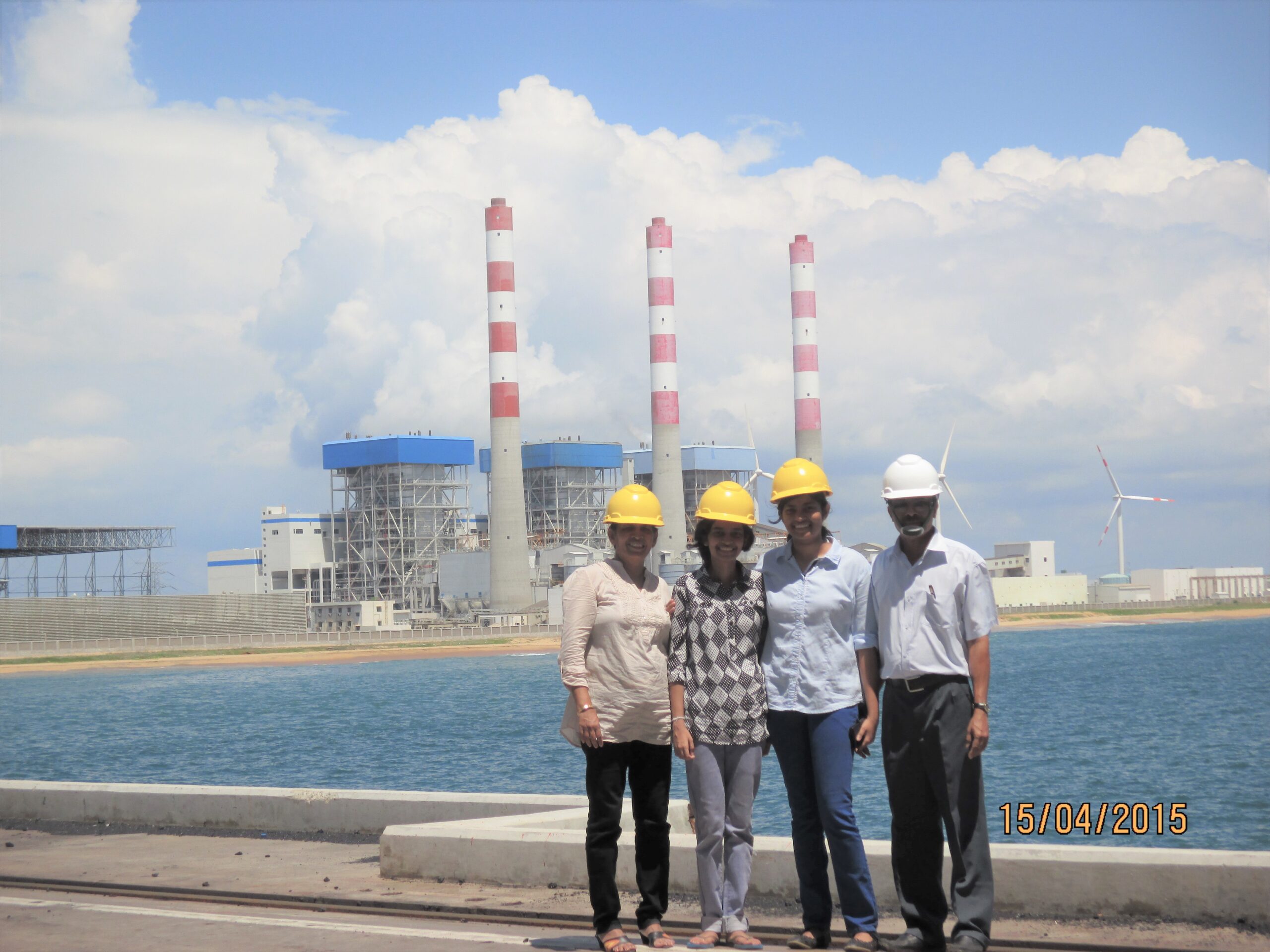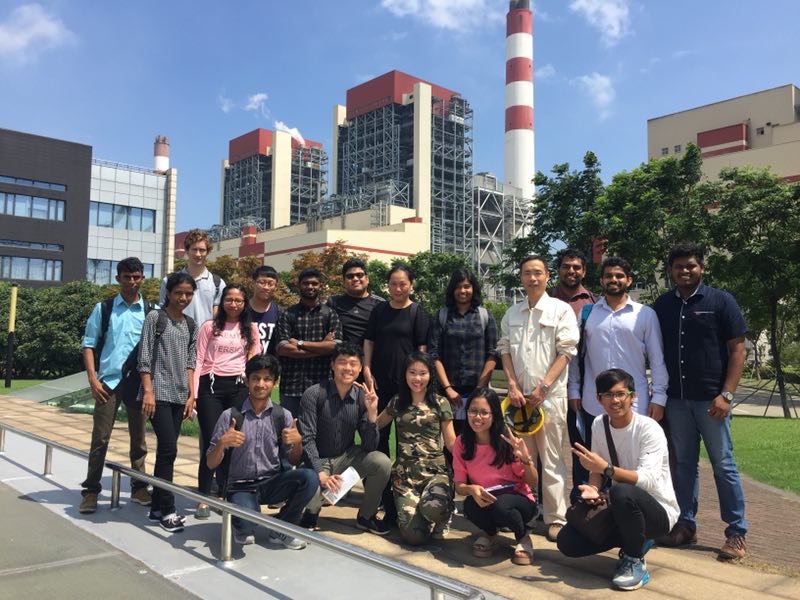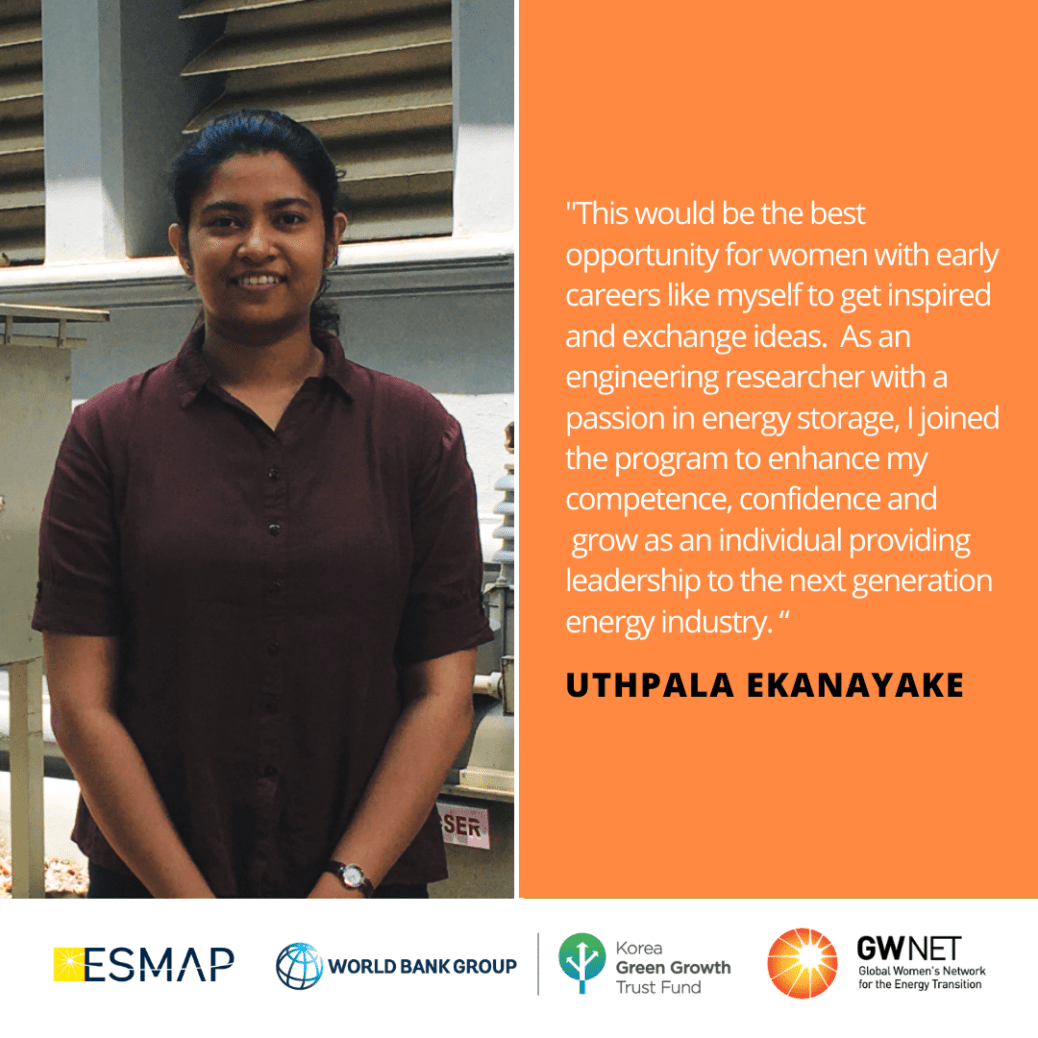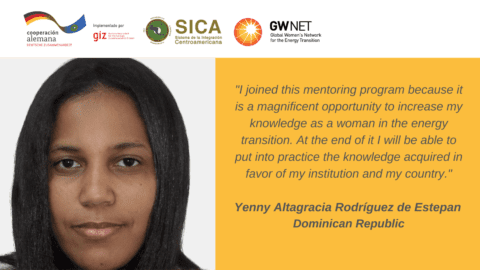The Women in Energy Storage Mentoring Programme sat down with Uthpala Ekanayake, one of this year’s participants, to chat about her journey in renewable energy and the challenges and opportunities for women in the energy storage sector.
1) Tell us a little about yourself. What do you love most about what you do?
I am Uthpala Ekanayake, an electrical engineering graduate from the University of Peradeniya in Sri Lanka. Soon after graduating, I joined the temporary staff in the Department of Electrical and Electronic Engineering at my university, as I enjoy teaching, research and travelling around the world.
From a very young age, I had the opportunity to visit power plants across the country, because my father is an engineer and I wanted to follow his path. I had a growing interest in the renewable energy industry while pursuing my studies. Since I am at the beginning of my career in academia, I always look for opportunities to improve myself in areas where I am passionate about.

2) What were your goals when you started working in energy storage? Have these evolved?
Power networks are experiencing a transition, from traditional models to distributed generation and energy storage systems, even in a country like Sri Lanka.
With a growing population, high energy demand, blackouts, natural disasters and even the current pandemic, I believe that the best option we have is cheap and abundant renewable energy resources and advanced energy storage systems. To facilitate a high penetration of renewables, the concept of microgrids was popularized (both grid-connected and standalone). I am interested in microgrids and most of my research work is based on microgrid island operation and control using multi-agents with distributed energy resources.
I look forward to furthering my research in incorporating energy storage in microgrids and enabling electrical energy in geographically remote areas in my country.
3) How has the COVID-19 pandemic impacted the professional goals you set out for the year?
My plan was to travel abroad for my further studies this year but this has been delayed. Even my faculty was closed for a few months, and teaching was conducted online. However, the extra time during the lockdown helped to improve me as an individual, enhance my skills in coding, learn new topics and work on a few publications.
4) What are the opportunities for energy storage growth in your country?
Sri Lankan energy generation is currently at around 40% renewable energy from hydropower and the remaining energy coming largely from coal and diesel. Sri Lanka is expected to add 200 MW of solar electricity to the national grid by 2020 and 1000 MW by 2025 to achieve the expected target of 100% renewables. The Long Term Generation Expansion plan of CEB (national Grid Operator) has identified the implementation of 3×200 MW pump storage hydropower plant, which could provide sustainable storage capacity on par with the present technological status of the national grid. Other projects include floating solar power plants, wind parks and a solar project of 10 MW capacity with a 20% battery energy storage system.
According to the reports from the sustainable development authority in Sri Lanka, the real challenges lie in creating risk-free policy environments, financial models, and attracting investment to achieve the expected targets. Sri Lanka is looking forward to an ambitious zero-carbon future. The recent blackout that followed for several hours reveals the importance of the flexibility of our power network and the role that energy storage could have played. We need to acquire the expertise to tackle the technical and financial challenges in incorporating storage systems to grid networks.

5) What challenges have you faced in the sector? Can you tell us how you overcame (or are overcoming) this challenge(s)?
When it comes to job opportunities in this area, we are facing employer reluctance in recruiting female engineers when the work involves fieldwork, site supervision and shift work. This is mostly because of conservative backgrounds and cultural reasons in the country. But we see a slight difference in some big organizations where female engineers are encouraged in top managerial positions.
My take on this is not to get discouraged and to look for opportunities while developing your own technical and soft skills, and above all show confidence in what you do.

6) Why did you join the Women in Energy Storage Mentorship Programme? What do you hope to achieve?
As a person in academia and an engineering graduate with a passion for renewable energy, I look for opportunities to enhance my knowledge and skills both as a researcher and an engineer. Hence as a female researcher, I joined the program to enhance my expertise in my areas of interest through interaction with international experts in this field.
Additionally, this would be the best opportunity for women with early careers like myself to network and learn professional conduct. This will help enhance my confidence, leadership skills and open more opportunities in the future.
7) What advice would you give to women hoping to join the energy storage sector?
Keep believing in yourself because there are women who succeed in their careers in the energy storage sector even amidst various pressures. If you are the best fit for any role, nobody can deny you the opportunity based on your gender.
There are forums and networks like GWNET where you can exchange your views and get inspired and look for more opportunities to enhance your career.
Read more about GWNET’s mentoring programmes here.











